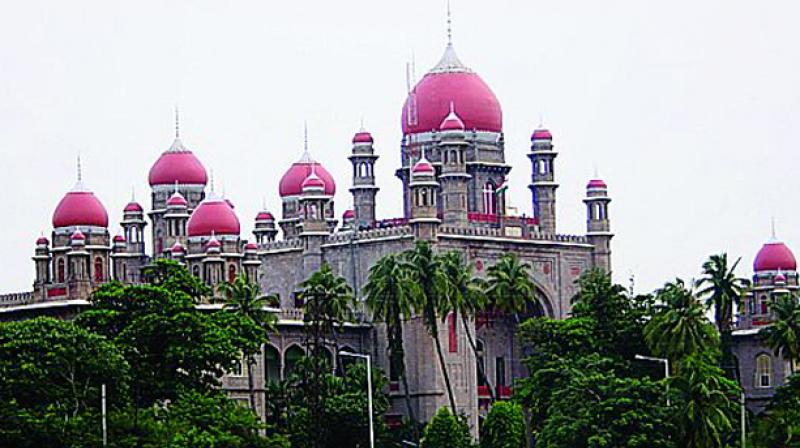Hyderabad High Court rejects employee's plea

Hyderabad: The Hyderabad High Court has ruled that a full-fledged enquiry that is required in the case of a regular employee may not be necessary while dealing with an NMR employee.
A division bench comprising Justice P.V. Sanjay Kumar and Justice Anis, while dismissing a batch of petitions by V.V.R.K. Srinivas and other NMR employees of Sri Durga Malleswara Swamy Vari Devasthanam at Vijayawada, observed that as long as sufficient opportunity of hearing is given to an NMR employee, he cannot insist upon the procedure applicable to a regular employee being adopted in his case.
The petitioners challenged their disengagement of service on the ground of misappropriation and terminating their services without a full-fledge inquiry.
Earlier in one such case a single judge held that even in the case of a NMR employee, if the order of termination was not simpliciter, but had penal consequences and attached a stigma, it could not be passed without following the basic principles.
When the case of Srinivas came up before another single judge he was not inclined to agree with this view and referred the matter for consideration by a division bench.
The bench said that “the broader issue that therefore falls for consideration before us is whether the principles of natural justice have to be followed while dispensing with the services of an NMR worker/employee when such dispensation is stigmatic and if so, the extent to which the principles of natural justice have to be adhered to.”
The bench observed that “merely because a worker or employee is either casual or not borne out on the muster rolls, it would not give the employer the freedom to pass a stigmatic order against him without following the rule of audi alteram partem. It is a settled tenet of jurisprudence that no man can be condemned unheard.”
The bench said “it is equally well settled that the principles of natural justice cannot be straitjacketed or cast in iron-clad terms.”
Petitioner says DEO rejected his application
A division bench of the Hyderabad High Court comprising Acting Chief Justice Ramesh Ranganathan and Justice Shameem Akhter dismissed an appeal by Ch.Chinnakishore Venukoti, a resident of Warangal who is appearing for Civil Services, seeking to change his date of birth.
Mr Venukoti submitted that the district educational officer has rejected his application as the application for correction was made after lapse of 19 years and not within the stipulated time of three years as per GO Ms No. 430 of Education Department, dated December 31, 1992.
He brought to the notice of the court that though his date of birth was confirmed by medical officer and by the Registrar of Births and Deaths of the Municipal Corporation as September 4, 1982, the DEO has rejected his application.
He submitted that due to a wrong entry made at the time of admission in the school he is losing the opportunity to appear for the Civil Services Examination as the age limit is 35 years.
While dismissing the appeal the bench pointed out that the appellant was born in 1982 and till 2016 he has not taken any steps to correct his date of birth.
and he had repeatedly given his date of birth as May 4, 1982 till completion of his post graduation in 2004.
The bench said that the period allowed to file an application to change or alter the date of birth was three years and the appellant did not avail the benefit envisaged under the G.O 430.
The bench also pointed out that in the medical certificate issued by the Medical Officer, Christian Hospital in Hanamkonda, the name of father of appellant and address of his mother was not mentioned and therefore it was not safe to accept the said certificate.
With regard to alteration of date of birth in service records of government servants, the Supreme Court in one case has ruled that the date of birth recorded in the service book of the government servant on the basis of his SSLC (SSC) Certificate, at the time of his entry into service, was final, and he was not entitled to reopen the correctness of that entry on the basis of copy extracted from the birth register.

